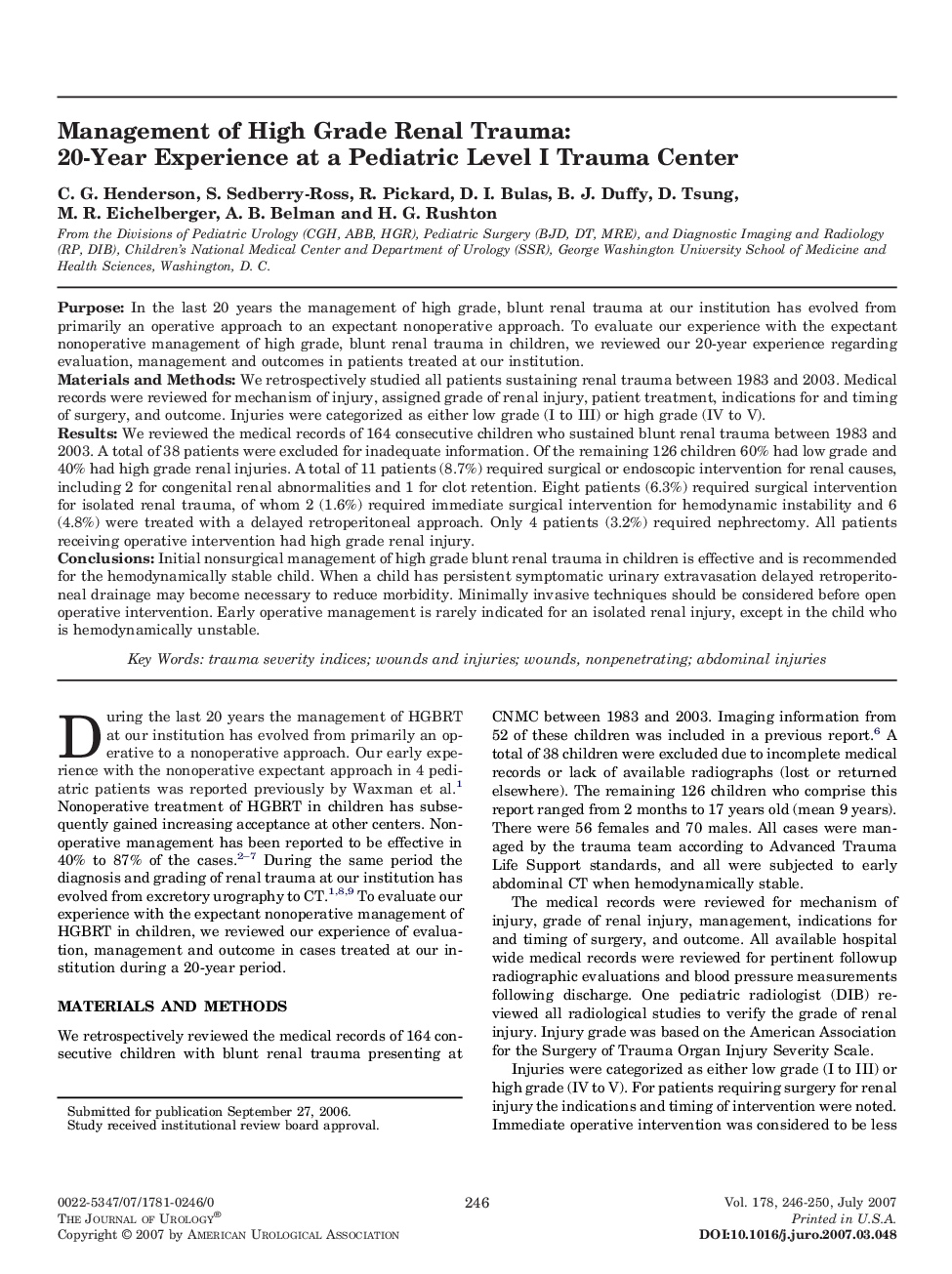| Article ID | Journal | Published Year | Pages | File Type |
|---|---|---|---|---|
| 3878548 | The Journal of Urology | 2007 | 5 Pages |
PurposeIn the last 20 years the management of high grade, blunt renal trauma at our institution has evolved from primarily an operative approach to an expectant nonoperative approach. To evaluate our experience with the expectant nonoperative management of high grade, blunt renal trauma in children, we reviewed our 20-year experience regarding evaluation, management and outcomes in patients treated at our institution.Materials and MethodsWe retrospectively studied all patients sustaining renal trauma between 1983 and 2003. Medical records were reviewed for mechanism of injury, assigned grade of renal injury, patient treatment, indications for and timing of surgery, and outcome. Injuries were categorized as either low grade (I to III) or high grade (IV to V).ResultsWe reviewed the medical records of 164 consecutive children who sustained blunt renal trauma between 1983 and 2003. A total of 38 patients were excluded for inadequate information. Of the remaining 126 children 60% had low grade and 40% had high grade renal injuries. A total of 11 patients (8.7%) required surgical or endoscopic intervention for renal causes, including 2 for congenital renal abnormalities and 1 for clot retention. Eight patients (6.3%) required surgical intervention for isolated renal trauma, of whom 2 (1.6%) required immediate surgical intervention for hemodynamic instability and 6 (4.8%) were treated with a delayed retroperitoneal approach. Only 4 patients (3.2%) required nephrectomy. All patients receiving operative intervention had high grade renal injury.ConclusionsInitial nonsurgical management of high grade blunt renal trauma in children is effective and is recommended for the hemodynamically stable child. When a child has persistent symptomatic urinary extravasation delayed retroperitoneal drainage may become necessary to reduce morbidity. Minimally invasive techniques should be considered before open operative intervention. Early operative management is rarely indicated for an isolated renal injury, except in the child who is hemodynamically unstable.
